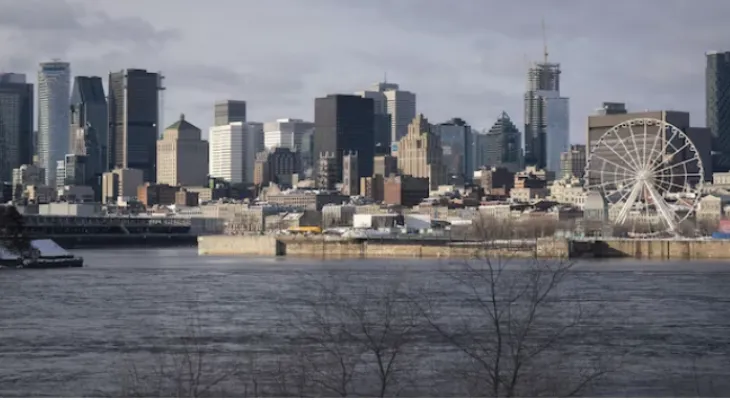Search here
Newspaper
Search here

Arab Canada News
News

Published: February 27, 2024
A report by "Montréal International" indicates that the global economic slowdown, rising interest rates, and the end of electricity surpluses are reasons that led to a 23% decrease in foreign investments in the Greater Montréal area last year.
It is noted that "Montréal International" (Montréal International) is an economic development agency that encourages investment in Greater Montréal. It was established in 1996 and is a non-profit organization funded by the private sector, the governments of Canada and Quebec, the Montréal Metropolitan Community, and the City of Montréal.
After attracting record levels of foreign investment in 2021 and 2022, the Greater Montréal area suffered from the effects of the global economic slowdown last year.
"Montréal International" states in its 2023 data released today, Monday, that it supported the launch of 87 projects last year, attracting $2.7 billion in foreign investment for these projects.
This is $845 million less compared to 2022 and nearly one billion dollars less than in 2021. It should be noted here that 2021 and 2022 were record years.
The CEO of "Montréal International," Stéphane Paquet, says: "At the time we are speaking now, there are three countries in the G7 suffering from recession. There is Germany, the UK, and Japan. And we wonder when we look at the big technology groups, what is happening? They are laying off people by the dozens, hundreds, thousands, indeed hundreds of thousands around the world."
This is a situation that pushes large companies and multinational corporations to scale back expansion projects and focus more on profits. Paquet explains: "For us, there are many postponed investment projects, and there are many investment projects that simply will not be implemented."
The decline in investment in the information technology sector was particularly felt in 2023.
During the pandemic, everyone invested in cybersecurity, video games, and software and applications to ensure that people could work from home; it was crazy. But today, this is no longer the case.
The spokesperson sees that besides the significant rise in interest rates, which has a strong impact on investment and business expansion projects, the end of large electricity surpluses in Quebec is also one of the factors that contributed to the slowdown of foreign investment in the Greater Montréal area.
Since Québec’s green or low-cost renewable energy is now experiencing increased demand in all sectors that consume less energy, many companies around the world have shown interest. This forces the Quebec government to make its decisions.
Nevertheless, "Montréal International" will have achieved its third-best year in terms of funds raised last year, as confirmed by its CEO.
Among the 87 projects supported by "Montréal International" last year, 48 were companies not previously present in the Montréal area that came to settle there, while the number of these new companies was 52 in 2022.
Stéphane Paquet adds: "This represents an 8% decrease compared to 2022. According to the United Nations Conference on Trade and Development (UNCTAD), the number of new companies in rich countries declined by about 16% globally. We did twice as well as the rest of the world. Overall, it was more difficult for everyone."
Perhaps the sectors that attracted the most investments in 2023 are clean technology, environmental services, life sciences, health technology, cybersecurity, and information technology services.
These sectors represent more than 50% of foreign investments in the Greater Montréal area.
Comments